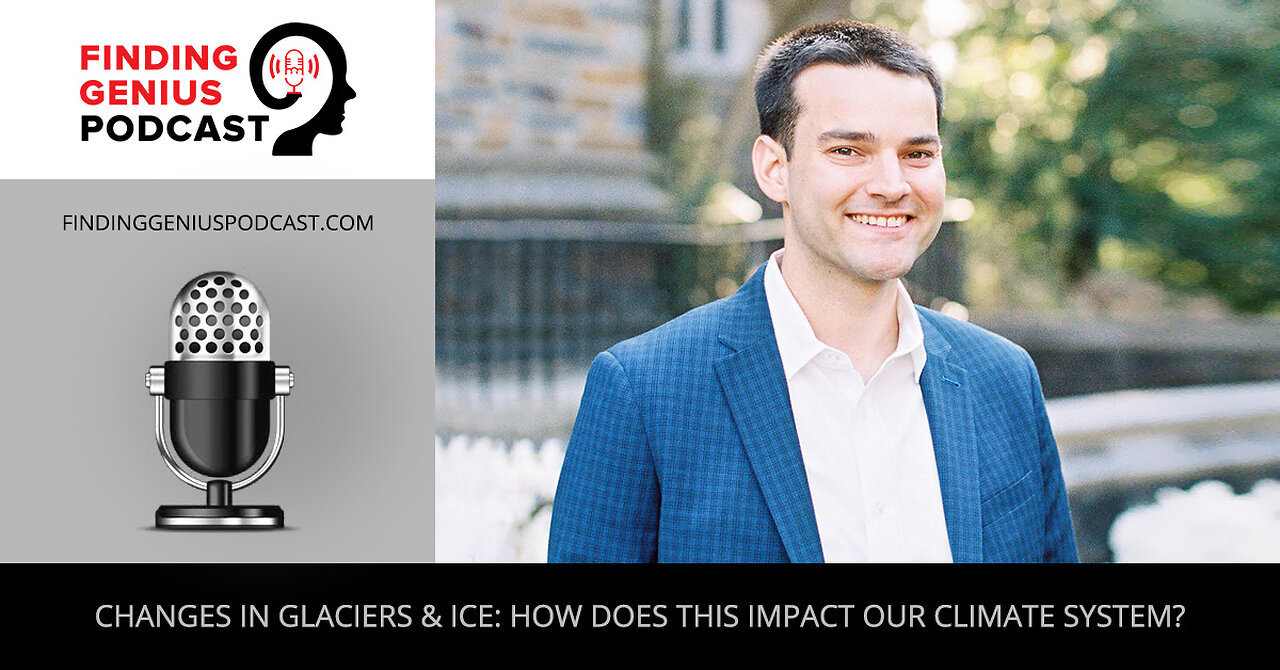Premium Only Content

Changes In Glaciers & Ice: How Does This Impact Our Climate System?
Ice is an important facet of Earth’s climate system. Since ice affects our climate and sea levels, understanding the way ice sheets develop and change over time helps us better predict the future of our planet. So, what are researchers finding? Dr. Alexander Robel joins the podcast to enlighten us…
Dr. Robel is an Assistant Professor in the School of Earth and Atmospheric Sciences at Georgia Tech University, and serves as the head of the Ice and Climate research group. By studying the causes of ice sheet change, Dr. Robel is on a mission to develop conceptual, mathematical, and computational tools to predict future changes.
Offer:
Magnesium is integral for 600+ biochemical processes in the human body. The common misconception is that consuming more magnesium will automatically improve health and well-being. The truth is that there are various forms of magnesium, each of which is essential for a variety of physiological processes. Most people are inadequate in all forms of magnesium, while even those considered "healthy" typically only ingest 1 or 2 kinds. Consuming all 7 of magnesium's primary forms is the key to accessing all its health benefits.That’s why we packed 7 forms of 450mg of elemental magnesium into each serving of Wild Mag Complex. One dose a day is all you need. Learn more and grab a bottle today at WildFoods.co. Use code GENIUS for 10% off your order.
In this episode, we talk about:
1) What happens when glaciers melt.
2) Where glaciers and ice sheets tend to form, and why they melt.
3) What “sea ice” is, and where it forms.
4) How computer models are used in Dr. Robel’s research.
Want to learn more about Dr. Robel and his research? Click https://iceclimate.eas.gatech.edu/ now!
Episode also available on Apple Podcasts: http://apple.co/30PvU9C
-
 0:35
0:35
FGP
6 hours ago🌸 Common Symptoms Of Perimenopause And Menopause 🔥
19 -
 31:58
31:58
The Officer Tatum
5 hours agoThe View LASHES OUT On Morning Joe For MEETING WITH Trump
34.8K56 -
 1:37:46
1:37:46
Kim Iversen
11 hours agoJoe Biden’s Post-Election Revenge: WW3 | Democrats Tremble Over Matt Gaetz and RFK Jr, Form “Shadow Cabinet"
118K125 -
 1:47:09
1:47:09
Fresh and Fit
11 hours agoGuy Crashes Car Working Uber?! Money Monday Call In Show!
75.9K11 -
 1:48:50
1:48:50
Glenn Greenwald
12 hours agoDC Attacks Trump's Most Disruptive Picks; Biden Authorizes Massive Escalation With Russia; Joe & Mika Meet With "Hitler" | SYSTEM UPDATE #367
168K200 -
 1:44:34
1:44:34
Tucker Carlson
11 hours agoTucker Carlson and Russ Vought Break Down DOGE and All of Trump’s Cabinet Picks So Far
207K270 -
 1:42:47
1:42:47
Flyover Conservatives
1 day agoBO POLNY | The Best and Worst Times Are Coming – Are You Ready? | FOC Show
58.1K22 -
 51:12
51:12
BIG NEM
14 hours agoWelcome to Our Uncensored Show: Trump, Simulation Theory & the Albanian Mob - EP1
65.8K17 -
 2:05:14
2:05:14
Robert Gouveia
12 hours agoFBI Criminals Get LAWYERS; STOP Counting ILLEGAL Votes; Time to Disbar Tish James
82.6K113 -
 1:00:30
1:00:30
The StoneZONE with Roger Stone
11 hours agoAre We Heading For World War III? General Michael Flynn Joins The StoneZONE w/ Roger Stone
58.2K14